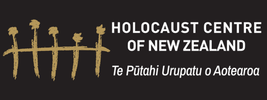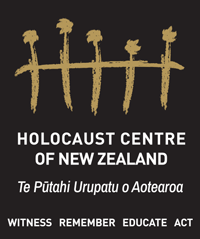PERSPECTIVES OF THE HOLOCAUST
The Holocaust was an unprecedented genocide; systematic, state-sponsored persecution and murder by the Nazi regime and its collaborators of approximately six million Jews (and another five million people designated “undesirables”), with the principal focus of annihilating European Jewry.
The primary driver and motivation was Nazi anti-Semitic racist ideology. Coming to power in Germany in January 1933, the Nazis believed the Germans were “racially superior” and the Jews “inferior” and an alien threat to the entire German racial community (Source: United States Holocaust Memorial Museum).
Between 1933 and 1941, Nazi Germany pursued a policy that dispossessed the Jews of their rights and property through the introduction of discriminatory legislation (notably, the Nuremberg Racial Laws of 1935 defining Jews biologically based on the religion of their grandparents) and extreme anti-Semitic propaganda, followed by the branding and concentration of the Jewish population. This policy gained broad support in Germany and much of occupied Europe.
From 1939 to 1945, two-thirds of all European Jewry perished, with nearly six million murdered by 1945.
‘The Holocaust’ is a word of Greek origin meaning literally “sacrifice by fire”. It is a term used to describe the systematic, wholesale slaughter of European Jewry by the Nazis (and their collaborators) during World War II (source: Yad Vashem, Jerusalem, Israel).
During the Holocaust, German authorities also targeted other groups because of their perceived “racial inferiority”: Roma and Sinti (Gypsies), the disabled and some Slavic peoples (Poles, Soviet prisoners of war) were all murdered in vast numbers.
Other groups were also persecuted on political, ideological and behavioural grounds and brutally killed in Nazi concentration camps, among them communists, socialists, Jehovah’s Witnesses and homosexuals (sources: United States Holocaust Memorial Museum, Washington, DC, USA; Imperial War Museum, London, UK).
Genocide Definition
In 1948, the United Nations defined ‘genocide’ as any of the following acts committed with intent to destroy, in whole or in part, a national, ethnic, racial, or religious group, including:
- Killing members of the group
- Causing serious bodily or mental harm to members of the group
- Deliberately inflicting on the group conditions of life calculated to bring about its physical
Destruction, in whole or in part
- Imposing measures intended to prevent births within the group
- Forcibly transferring children of the group to another group.
As well as the Holocaust, other major genocides in modern history include Cambodia, Rwanda and the Balkans.
Antisemitism Definition
Antisemitism is the term for the ‘hatred of Jews as a group or concept’. While, such hatred has existed since ancient times, in 19th century Europe it became significantly influenced by current ideological and scientific thinking.
The term "anti-Semitism" was originally coined and popularised during the latter half of the 19th century by German political activist, Wilhelm Marr. It signalled a turning point, marking the division between the classical, Christian hatred of Jews and modern, politically-rooted racist attitudes (Source: Moshe Zimmerman - Wilhelm Marr: The Patriarch of Anti-Semitism).
“Semitism” supposedly expressed all things Jewish – because at the time, national groups were typically defined by their language and the traditional language of Jews is Hebrew (a Semitic language). In reality, however, “Semitism” has never existed and speakers of Semitic languages have never identified as belonging to common national or ethnic groups.
Antisemitism may take the form of religious teachings that proclaim the inferiority of Jews, their supposedly evil nature, or other negative ideas about Jewish people. It may also include political efforts to isolate, oppress, or otherwise injure Jews, and prejudiced or other stereotyped views about Jews derived from racial or other ideologies.
The International Holocaust Remembrance Alliance provides the following contemporary definition:
“Antisemitism is a certain perception of Jews, which may be expressed as hatred toward Jews. Rhetorical and physical manifestations of antisemitism are directed toward Jewish or non-Jewish individuals and/or their property, toward Jewish community institutions and religious facilities.”
The primary driver and motivation was Nazi anti-Semitic racist ideology. Coming to power in Germany in January 1933, the Nazis believed the Germans were “racially superior” and the Jews “inferior” and an alien threat to the entire German racial community (Source: United States Holocaust Memorial Museum).
Between 1933 and 1941, Nazi Germany pursued a policy that dispossessed the Jews of their rights and property through the introduction of discriminatory legislation (notably, the Nuremberg Racial Laws of 1935 defining Jews biologically based on the religion of their grandparents) and extreme anti-Semitic propaganda, followed by the branding and concentration of the Jewish population. This policy gained broad support in Germany and much of occupied Europe.
From 1939 to 1945, two-thirds of all European Jewry perished, with nearly six million murdered by 1945.
‘The Holocaust’ is a word of Greek origin meaning literally “sacrifice by fire”. It is a term used to describe the systematic, wholesale slaughter of European Jewry by the Nazis (and their collaborators) during World War II (source: Yad Vashem, Jerusalem, Israel).
During the Holocaust, German authorities also targeted other groups because of their perceived “racial inferiority”: Roma and Sinti (Gypsies), the disabled and some Slavic peoples (Poles, Soviet prisoners of war) were all murdered in vast numbers.
Other groups were also persecuted on political, ideological and behavioural grounds and brutally killed in Nazi concentration camps, among them communists, socialists, Jehovah’s Witnesses and homosexuals (sources: United States Holocaust Memorial Museum, Washington, DC, USA; Imperial War Museum, London, UK).
Genocide Definition
In 1948, the United Nations defined ‘genocide’ as any of the following acts committed with intent to destroy, in whole or in part, a national, ethnic, racial, or religious group, including:
- Killing members of the group
- Causing serious bodily or mental harm to members of the group
- Deliberately inflicting on the group conditions of life calculated to bring about its physical
Destruction, in whole or in part
- Imposing measures intended to prevent births within the group
- Forcibly transferring children of the group to another group.
As well as the Holocaust, other major genocides in modern history include Cambodia, Rwanda and the Balkans.
Antisemitism Definition
Antisemitism is the term for the ‘hatred of Jews as a group or concept’. While, such hatred has existed since ancient times, in 19th century Europe it became significantly influenced by current ideological and scientific thinking.
The term "anti-Semitism" was originally coined and popularised during the latter half of the 19th century by German political activist, Wilhelm Marr. It signalled a turning point, marking the division between the classical, Christian hatred of Jews and modern, politically-rooted racist attitudes (Source: Moshe Zimmerman - Wilhelm Marr: The Patriarch of Anti-Semitism).
“Semitism” supposedly expressed all things Jewish – because at the time, national groups were typically defined by their language and the traditional language of Jews is Hebrew (a Semitic language). In reality, however, “Semitism” has never existed and speakers of Semitic languages have never identified as belonging to common national or ethnic groups.
Antisemitism may take the form of religious teachings that proclaim the inferiority of Jews, their supposedly evil nature, or other negative ideas about Jewish people. It may also include political efforts to isolate, oppress, or otherwise injure Jews, and prejudiced or other stereotyped views about Jews derived from racial or other ideologies.
The International Holocaust Remembrance Alliance provides the following contemporary definition:
“Antisemitism is a certain perception of Jews, which may be expressed as hatred toward Jews. Rhetorical and physical manifestations of antisemitism are directed toward Jewish or non-Jewish individuals and/or their property, toward Jewish community institutions and religious facilities.”


